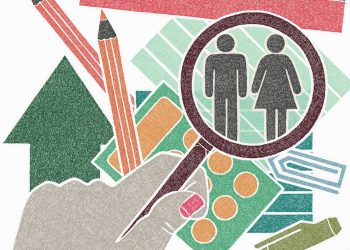Welcome to Singapore. We count everything here.Even parenting.Channel NewsAsia has reported that we will soon be seeing a “Better Fathering Index”, put together after a comprehensive survey of fathers in Singapore and their involvement in their children’s lives. Touted as “a novel idea to get a better feel of the state of fatherhood in Singapore”, this index is believed to be the first in the world.
That’s not so surprising, though. Apart from Singapore, who would come up with the idea of attempting to measure fatherhood?
Once again we’re back to our old habits. The need to measure everything, to quantify everything and put everything into little labelled boxes. It makes one wonder if we know how to relate to life in any other way.
Chatting to friends with kids about this “Better Fathering Index”, the problems are immediately apparent.
“We mothers take up the role to cover from head to tail. School, home, work, organizing, everything is so normal that it is nothing special. Fathers do a bit and omg oh wow! Such inequality,” says Edwina Lin.
Stephanie Chok also points out the difficulties in picking proper indicators. “How will they decide what are ‘better fathering’ indicators as opposed to things that caregivers just do normally? I don’t want Patrick to accompany Matt to his first day of school, that is so “special occasion”. I would like him to wake up in the middle of the night when Matt cries or change his diaper when he has major diarrhoea.”
Callan Tham agrees: “Parenthood isn’t a series of bloody checkboxes, which is what this stupid index is about. This is undoubtedly the stupidest thing I’ve read for some time.”
And what of the various challenges that different families face? “If the father is the sole breadwinner he doesn’t have time to send kids to their tuition or see their concert. He has to put in the effort to maintain his family. Money is not easy to earn and not everyone has the luxury of time and money. How to measure everyone with the same yardstick?” Edwina asks.
“This index is just valourising an idealized version of fatherhood. Caregiving is a lot more than special occasion-style special memories,” Stephanie adds.
“As a father, I don’t need this index to tell me how well I’m doing as a father,” Callan says. “What I want is more support from the system so I can continue doing what I do, and by extension, so that my wife will not be disadvantaged in making her choices in life.”
Listening to my friends, I wonder if those behind the index even pitched this idea. Have they talked to many parents about this at all?
And why do we always have to fall back into the old habit of trying to make everything quantifiable? It’s like the Graciousness Index all over again. Is it really so difficult to accept that some things are solely qualitative, and cannot be quantified?
It’s part of a dangerous mindset that Singapore is cultivating. A need for everything to be measurable and presentable in a PowerPoint slideshow or an Excel chart before we are able to appreciate its worth.









